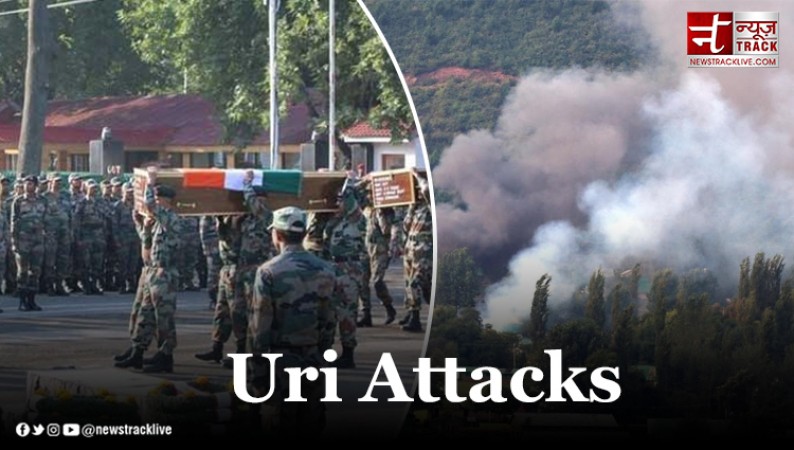
September 18, 2016, is a date etched into the collective memory of India as a day of tragedy and loss. On this fateful day, four militants from the Pakistan-based terrorist organization Jaish-e-Mohammed carried out a brazen attack on an Indian Army brigade headquarters located near the town of Uri in the disputed region of Jammu and Kashmir. The attack resulted in the loss of 19 brave Indian soldiers, with several others sustaining injuries. The 2016 Uri attack was a significant event in the ongoing conflict between India and Pakistan, raising questions about regional security and the continuing struggle for peace in the region.
The Uri Attack
The Uri attack unfolded in the early hours of September 18, 2016, when a group of heavily armed militants stormed the Indian Army's 12th Brigade headquarters in Uri, a town situated close to the Line of Control (LoC), which serves as the de facto border between India and Pakistan in Jammu and Kashmir. The attackers infiltrated the heavily guarded perimeter and launched a coordinated assault on the military camp.
The terrorists used a combination of small arms fire, grenades, and incendiary materials, which resulted in a devastating fire that engulfed several tents housing the soldiers. The initial surprise attack left the soldiers with little time to react, leading to a significant loss of life.
Loss of Lives and Injuries
The Uri attack proved to be one of the deadliest attacks on the Indian Army in recent history. In total, 19 Indian soldiers lost their lives during the attack, while between 19 and 30 others sustained injuries of varying degrees of severity. The injured were immediately evacuated to nearby medical facilities for treatment.
The loss of these brave soldiers sent shockwaves throughout India and prompted a strong and emotional response from the nation. The Uri attack was not just an attack on a military base; it was an attack on the sovereignty and security of India, evoking a profound sense of outrage and grief among its citizens.
International Outcry
The Uri attack garnered international attention and condemnation. Countries from around the world expressed their solidarity with India and condemned the act of terrorism. The United States, Russia, France, and many other nations offered their condolences and support, emphasizing the need to combat terrorism globally.
India's Response
In the aftermath of the Uri attack, India faced immense pressure to respond decisively. The Indian government took several steps to address the situation. Diplomatically, India sought to isolate Pakistan on the global stage, alleging that the attackers had links to Pakistani-based terrorist organizations and demanding that Pakistan take action against them.
Militarily, the Indian Army carried out surgical strikes on terrorist launch pads across the Line of Control on September 29, 2016. These targeted operations were aimed at preemptively neutralizing terrorists who were planning to infiltrate into India. The surgical strikes were seen as a robust response to the Uri attack and sent a clear message that India would not tolerate cross-border terrorism.
Pakistan's Denial
Pakistan, however, denied any involvement in the Uri attack and rejected India's claims about the identity of the attackers. Pakistan's government insisted that it was not responsible for the actions of non-state actors and called for a joint investigation into the incident. This response further strained the already tense relationship between the two nuclear-armed neighbors.
The 2016 Uri attack remains a dark chapter in the history of the India-Pakistan conflict. It not only resulted in the loss of precious lives but also escalated tensions in the region. The attack underscored the urgent need for both nations to find a peaceful resolution to their long-standing disputes and to cooperate in the fight against terrorism.
As India remembers the sacrifice of the brave soldiers who lost their lives in the Uri attack, it serves as a reminder of the ongoing challenges and complexities in the region. The quest for lasting peace and stability in Jammu and Kashmir continues, and the Uri attack serves as a stark reminder of the human toll of unresolved conflicts.